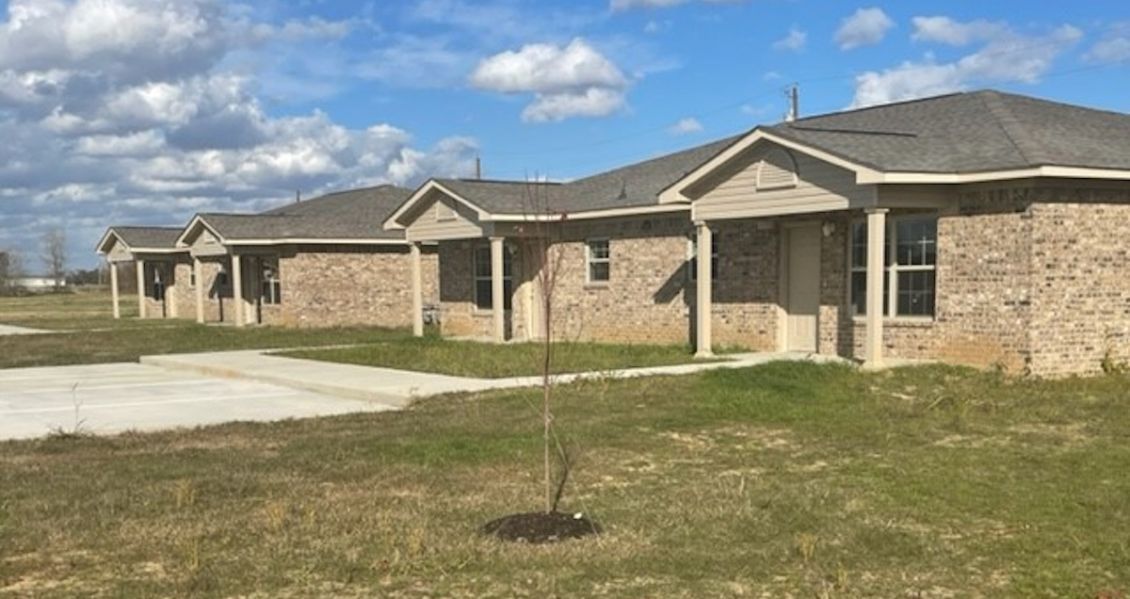Lower-income communities struggle disproportionately with poor housing quality. In rural Mississippi, people of color – particularly Black residents – are more likely to be rent-burdened and live in substandard housing. This combination of factors affects physical living conditions and can have a big impact on health, leading to respiratory disease, mental health concerns, and lack of access to healthy food.
Tunica County Community Development Corporation (TCCDC) in the Mississippi Delta is helping implement a healthy housing initiative and assisting residents in purchasing quality, affordable homes with Section 4 funding.
Promoting Healthy Housing
Five years ago, the organization embarked on its healthy housing initiative to address the poor quality, substandard housing that already existed in their communities and to incorporate these practices in new housing, said TCCDC Financial and Grant Manager Katrina Bryant.
“Through the healthy housing initiative, we can help develop affordable housing that is clean, dry, free of pests and contaminants, and well maintained and ventilated,” said Bryant. “Following these healthy housing principles, we can also incorporate these practices into their homebuyer education classes, which includes a session on the importance of creating and maintaining a healthy home.”
Additionally, this approach has become a part of TCCDC’s new and current housing development, where they have created non-carpet homes by hardening hardwood floors and adding detectors to monitor for dust allergens and other potential toxins.
TCCDC is also working with residents to help them identify strategies to improve their health. Some residents lack the knowledge and are unaware of the importance of maintaining a healthy home environment and do not have access to the resources to address these issues, Bryant said.
TCCDC’s trainings educate homeowners on the benefits of healthy housing, which directly contributes to improved air quality, reduced health care costs, increased school and work attendance, improvement in the quality of life, healthier families, healthier communities, and an overall healthier environment.
Connecting Health and Homeownership
TCCDC counseling staff is also using the Section 4 funds to assist potential homebuyers package their application to qualify for a 502 Direct Loan, a USDA Rural Development program that assists low- and very-low-income rural households obtain decent, safe, and sanitary housing by assisting to help an applicant’s repayment ability.
As part of a commitment to healthy housing, this program requires participation in healthy housing activities including pre-purchase and post-purchase healthy housing education classes as part of the packaging of their 502 Mutual Self-Help Housing application.
TCCDC has also recently been awarded the opportunity to package their 502 Mutual Self-Help Housing application in-house, and they are using Section 4 funding to pay for the training to provide this service.
“This is why Enterprise and other organizations alike are so valuable to us because we have to find ways to supplement our salaries so that we can continue the work that we do,” said Bryant.
TCCDC also purchased a building to serve as a housing resource center, where they can provide services to future home buyers. To help further their goal in providing affordable housing, Mississippi Home Corporation and the Tunica County Board of Supervisors have committed match funding of $7,000 each, totaling $14,000 in down payment assistance, for any new first-time homebuyers, or assistance to reduce their mortgage loan.
How Enterprise Supports Healthy Housing Policies
In collaboration with national partners such as the Robert Wood Johnson Foundation and The Pew Charitable Trusts, Enterprise offers resources to engage the community and residents to prioritize their health needs while supporting developers that practice this strategy. A Health Action Plan toolkit was created to assist affordable housing developers by integrating public health practices into their affordable housing development. The Health Action Plan is intended to support the work of housing developers who are committed to integrating health into affordable housing development.

